(A good 10 minute read)
INTRODUCTION
I have to say, I’m a bit of a nerd when it comes to a new stadium. It’s not only fascinating to see how these architectural marvels get constructed, but it’s pretty incredible to think about all of the things that have to happen to get them operational. A major component of that is preparing and launching the ticket operations, which I thought would be a great topic to explore for the next installment of our interview series.
Brian Thomas is a ticketing industry veteran that’s on the way to opening his third state-of-the-art facility at SoFi Stadium – future home of the Rams, Chargers, and some of Los Angeles’s biggest stadium shows. He also opened T-Mobile Arena in Las Vegas and Banc of California Stadium in Los Angeles, home to LAFC of Major League Soccer. We sat down with Brian to talk about his career, how LAFC uses technology to maximize their ticket operations, and what it’s like to open a brand new facility.
Here are some of the key takeaways from our conversation:
- If you're in sports, plan like you're going to win every game and go all the way.
- Business intelligence teams are key to optimizing ticket sales and maximizing revenue.
- If you’re at a brand new building, make sure you physically count every seat in advance.
- Having a propensity for finance is key to working in ticketing.
- Pass through rates can help you stay on top of access control issues.
- Enthusiasm is just as important as experience when hiring new team members.

Brian at the ribbon cutting for the Banc of California Stadium.
I really appreciate the time Brian.
Of course.
So where did you grow up?
I was born and raised in Bakersfield, California, about two hours north of LA. I had a small family, just one sister and my parents. We were a pretty self-contained little group.
Did you have any favorite sports teams growing up in that area?
I’ve been a baseball and football fan my whole life. I’m lucky that I grew up in the late ‘80s in California. It was a great time to be a sports fan in California. I attribute my love of sports to the year 1988. In 1988, I was eight years old and three of my favorite teams won the championship that year. The Dodgers won the World Series, the Lakers won the NBA Championship and the 49ers won the Super Bowl. That was a huge year for me.
Are those still your favorite teams?
I’ve transitioned in the last few years. I’ll always love the Dodgers but I’ve become an Angels fan. You can’t hate Mike Trout. I love watching that guy play. In 1993 the 49ers traded Joe Montana, who was my favorite player, to the Kansas City Chiefs. I followed him to the Chiefs and I have been a Chiefs fan ever since. It was a great start to 2020 to see them win a championship.
How did you get started working in events?
When I was a kid, I wanted to be Vin Scully. My career goal was to be a radio broadcaster. I didn’t have enough talent for playing sports. I was good enough to make the team but not good enough to start. I knew I was never going to have a career playing sports but I wanted to stay in sports in some other way. When I was a senior in high school, I got a chance to work for the minor league baseball team, the Bakersfield Blaze, doing on-field promotions. I started working for them part-time in high school, worked for them through college, and got a full-time job heading up the food and beverage operations at the stadium when I was 20 years old. I even got to do four years of the radio play-by-play for the team.
I worked for them for about eight years and I was the general manager for one year. The thing about working in minor league baseball is there is no money in it, but I learned a lot. I started a family and I had to figure out a way to make money. That’s when I got into ticketing. I started running the box office for the local arena in 2006.
 Brian and former Bakersfield mayor Harvey Hall talking baseball at a Bakersfield Blaze game when he was the General Manager.
Brian and former Bakersfield mayor Harvey Hall talking baseball at a Bakersfield Blaze game when he was the General Manager.
Where did you go from there?
In 2007, I got the chance of a lifetime to work at the Staples Center in Los Angeles. I was the Box Office Manager there for three years. After that, I moved around. I was the Director of Ticket Operations for the National Hot Rod Association which was a cool gig with a lot of travel. Then I ran the box office at what was the Citizens Business Bank Arena in Ontario. I was there about three years and then I got the chance to open the brand new T-Mobile Arena in Las Vegas in 2016. Vegas is an amazing place, but it was also a very different environment to work in. I did about a year stint there, got the arena up and running, and then moved home to Bakersfield to manage security & guest services at the Rabobank Arena.
And I would have stayed there forever, but I got a call from a dear friend and former colleague that I worked with at AEG, Sandy Lim, who heads up HR for LAFC. She basically said, “Hey, I’m recruiting for a role I think you would be a great fit for. It’s similar to what you did in Vegas, starting something new. Let’s chat about it." I initially hesitated, but once I saw what they were building, I signed on immediately.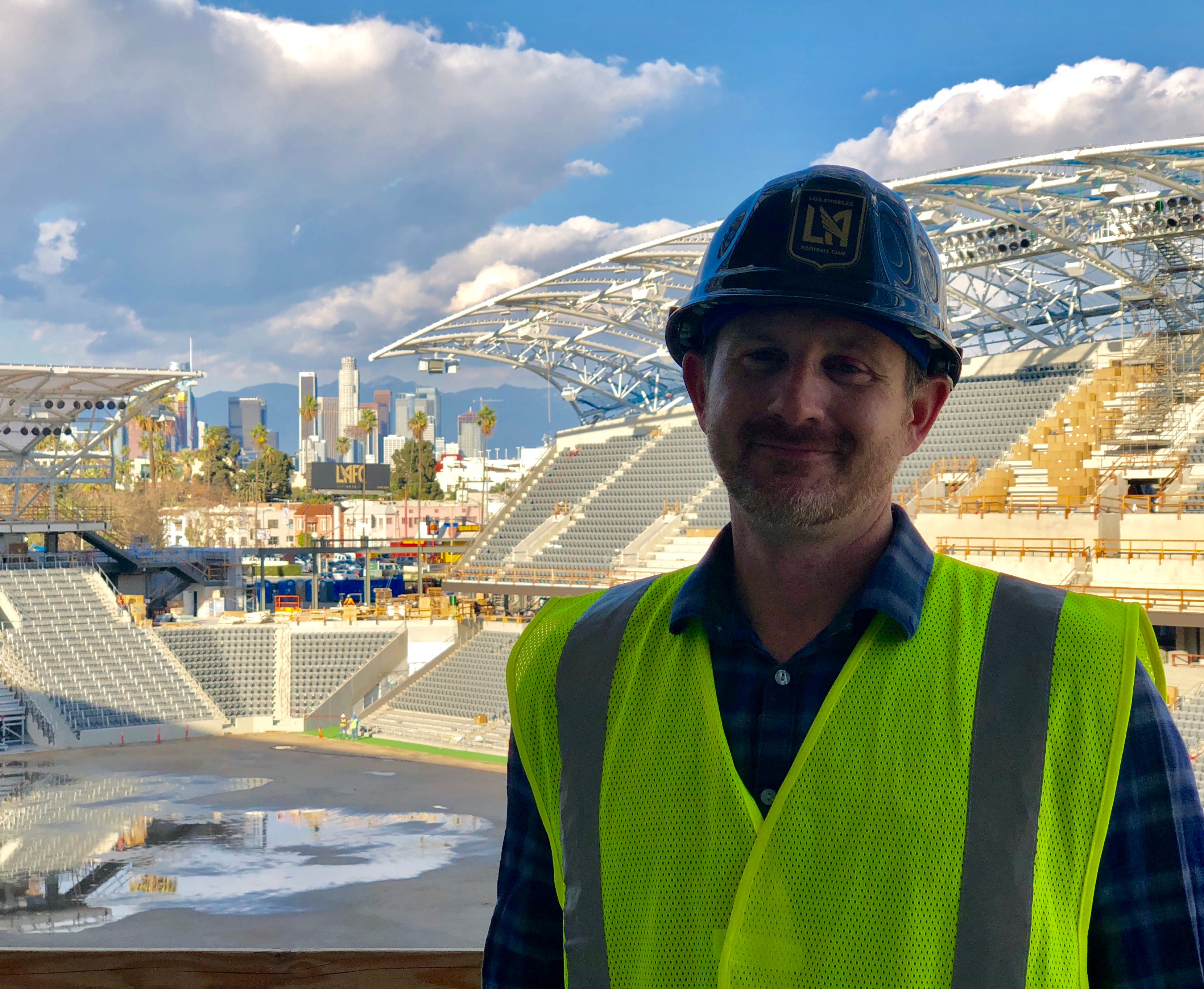 The "hero" shot at Banc of California Stadium with the skyline in the background, the day before the grass got installed.
The "hero" shot at Banc of California Stadium with the skyline in the background, the day before the grass got installed.
Can you tell me more about your current role?
I'm currently the Director of Ticket Operations & Box Office for LAFC and Banc of California Stadium. That comes with dual responsibilities which was a first in my career. I've worked on the team side a few times and the venue operations side a few times, but I've never done both at the same time. It was a brand new team, a brand new club, and a brand new 22,000 seat state-of-the-art $350 million soccer stadium. Having responsibilities that bridge both the team and venue side has been a really eye-opening experience. I’ll actually be leaving LAFC soon to start as the Director of Ticket Operations at SoFi Stadium.
Congratulations. That’s going to be an incredible venue from what I’ve seen.
I figured I've opened two buildings and I might have one more left in me, and what better place than the crown jewel of facilities for the next decade.
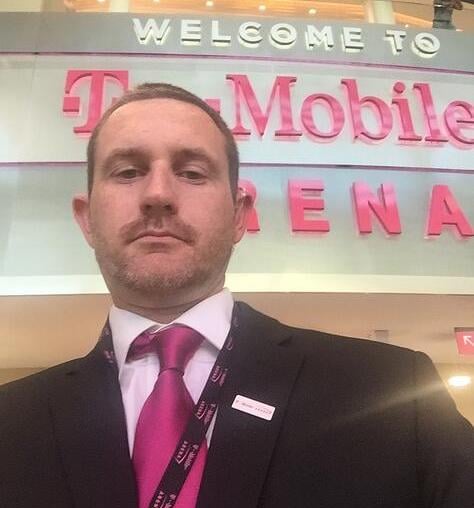
Brian in the lobby at T-Mobile Arena in Las Vegas just before opening night.
Let’s dive into your operations. What are you focused on during the off-season?
I’ve worked in facilities that were home to NHL and NBA franchises. You get a solid four month off-season. I learned really quickly that soccer doesn’t have an off-season. The final MLS Cup game is played in December and pre-season starts at the end of January. The things that you would accomplish in the off-season need to get done in the previous season. I’m working on renewals, seat relocations, and upgrade events while the previous season is in full swing. The cadence of a soccer season has been an eye-opening experience for me.
Doesn’t soccer also have other events and tournaments?
Yes, that’s a great point. The MLS season is 34 games but there are other tournaments such as CONCACAF and the Open Cup. Your event count goes through the roof. The farther you go in these tournaments, you’re adding more games to your season. It’s not like you can plan a whole lot in advance. It's a win and play the next game, lose and stay home type of thing. It's a lot of scrambling to get your job done in a short amount of time.
How do you approach those tournament and playoff events that may or may not happen?
We take the approach that we’re gonna win the whole thing. It helps you prepare for a four or five round tournament. If you’re playing round one, round two is going to happen the next week and you need to be prepared. You need to be able to get the event on sale as soon as the previous game has been won. Some teams put all the games on sale and refund the games that don’t get played. We don’t like taking a bunch of money upfront. We prefer the pay-as-you-play approach, but that means you have to be ready to roll.
What else goes into putting a sports season up for sale?
When you’re on the ground floor of opening a new facility, you definitely have to count all of the seats in advance. Events are put on sale as much as a year before the facility is completed using the diagram that was provided by the architect. You still have to go out there and verify those seats actually exist and nothing changed during the construction phase. If something did change, you have to start planning to relocate people that no longer have a seat.
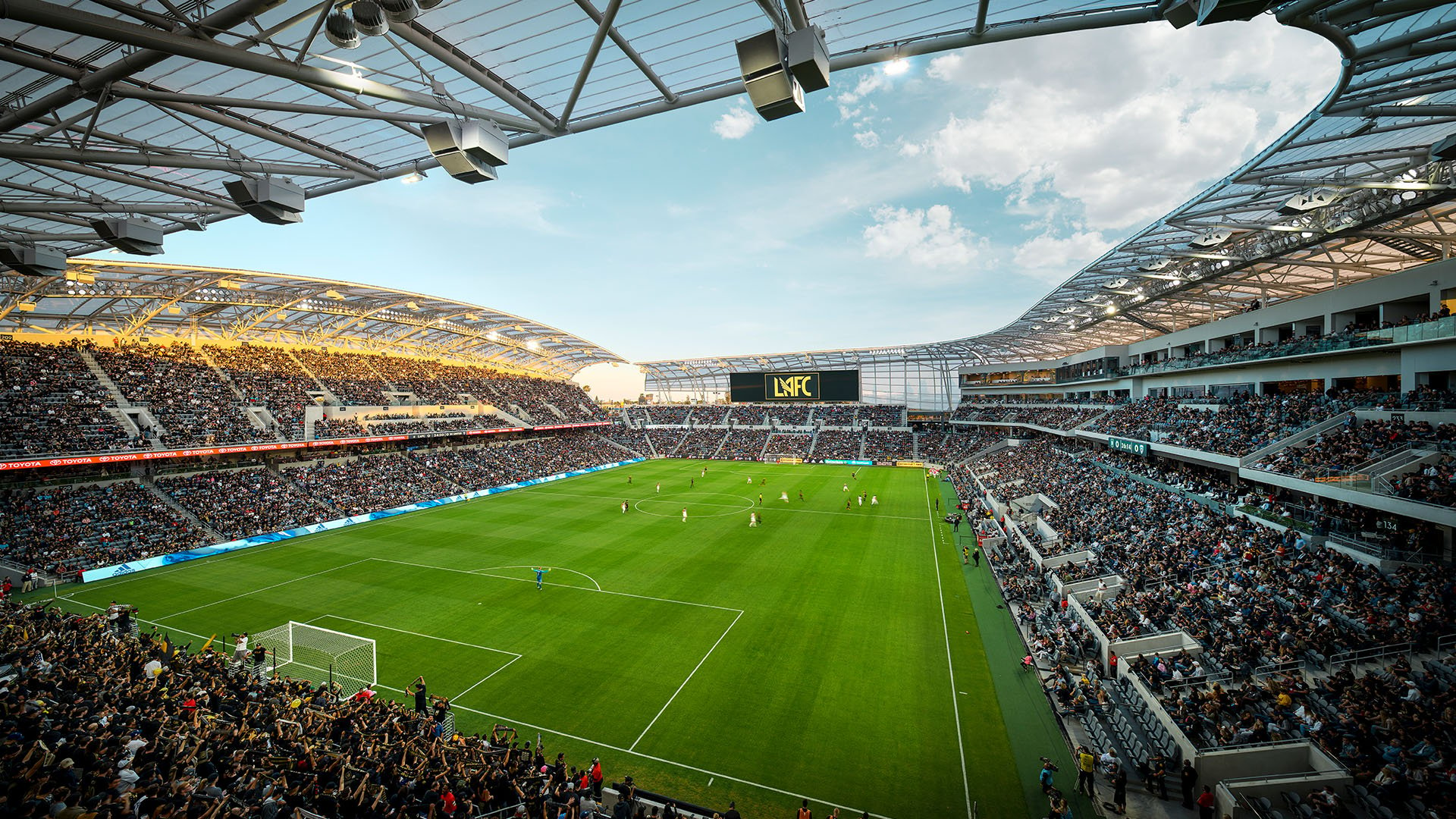
Photo Credit: LAFC
In the concert or music world, you’re working with the event promoter to determine pricing that scales and building it out in the ticketing system. The sports world is very much the same, but we have a little more control internally rather than working with a third-party promoter. We are the promoter, so we get to make decisions a little more independently. We’re also making sure we have set up each event in the ticketing system properly in terms of inventory, pricing, and holds. The last thing you want is to forget to hold the players’ families seats and then they show up on event day without anywhere to sit.
How would you characterize the difference between ticketing at a brand new building versus one that already exists?
When I took the job at the Staples Center in 2007 it had been open eight years at that point. It was a well-oiled machine and things happened the way they should. I’m going into my third new building and it’s an opportunity to make things your own. You’re drawing from previous experiences and processes that worked at other places, tweaking them, and applying them to the new building.
Do you find yourself relying on specific experiences from your past when opening a new facility?
Yes, 100%. I think about how some of my previous bosses would have handled things. Diana Bullion was my boss at the Staples Center for three years. I learned more about ticketing events from her in those three years than I have ever learned on my own since then. Steve Eckerson, my GM that I worked with in Bakersfield and Ontario, has been another mentor. He was certainly my biggest influence in terms of trusting your gut and saying, “You know what you're doing. Just do it." And that's great advice sometimes.
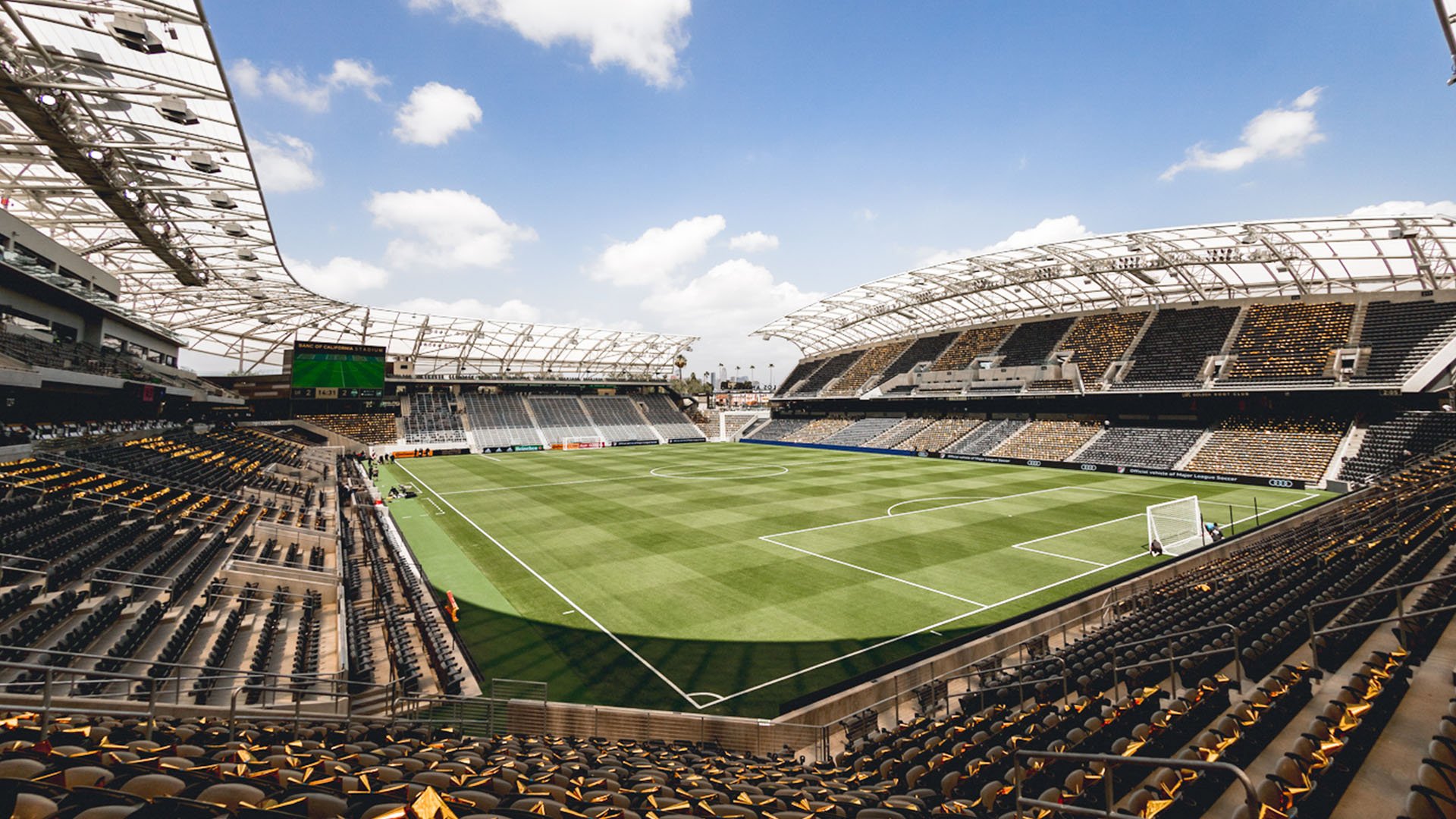
Photo Credit: LAFC
What's your day-to-day / week-to-week look like during the season?
It’s a lot of inventory management. You’re verifying pricing and holds for CBA allotments, players, coaches, staff members, marketing, and sponsorship. You also have to make sure those holds get released at the appropriate times if they’re not going to be used internally.
Then there's repricing. We have one of the best business intelligence teams that I’ve ever worked with at LAFC. They look at secondary market data and determine if we’re high or low to help us maximize our yield on ticket sales. They are at the top of the game and make a lot of recommendations on pricing adjustments.
There’s also the day-to-day operations of the facility. We’re constantly walking the stadium and making sure seats aren’t damaged and if they are they get fixed before the next game. I’m also making sure the box office is running efficiently with the right amount of folks scheduled.
How do you manage holds and internal ticketing?
Each group has different buckets of holds and they belong to somebody else. Sponsorship, marketing, the league, and the players have their own groups of seats. The sales department may be holding certain locations as potential season tickets. We don’t sell those as individual game tickets until later. Our job is to make sure that we're communicating effectively leading up to the event. We’re making sure everyone knows what they have, but we're also pushing them to let us sell tickets they don’t need anymore.
It’s a fine line and it becomes a finer line when you’re dealing with a third party promoter or music event. You’ve got holds for internal teams, you’ve got holds that belong to the bands, the promoter, the tour, and the record labels. It’s a matter of being proactive and making sure you’re not stuck with seats and lost potential revenue.
How does that process change when you're dealing with music events?
It gets more granular depending on who’s producing the event. Live Nation and AEG Presents, the big guys in the space, have their own internal processes, which makes things easier. They are aware of what’s being held and they are working with artist management, the agents, and the promoters. One-off shows may have less bandwidth or less experience, so then it can fall on the box office to proactively manage inventory with the producer.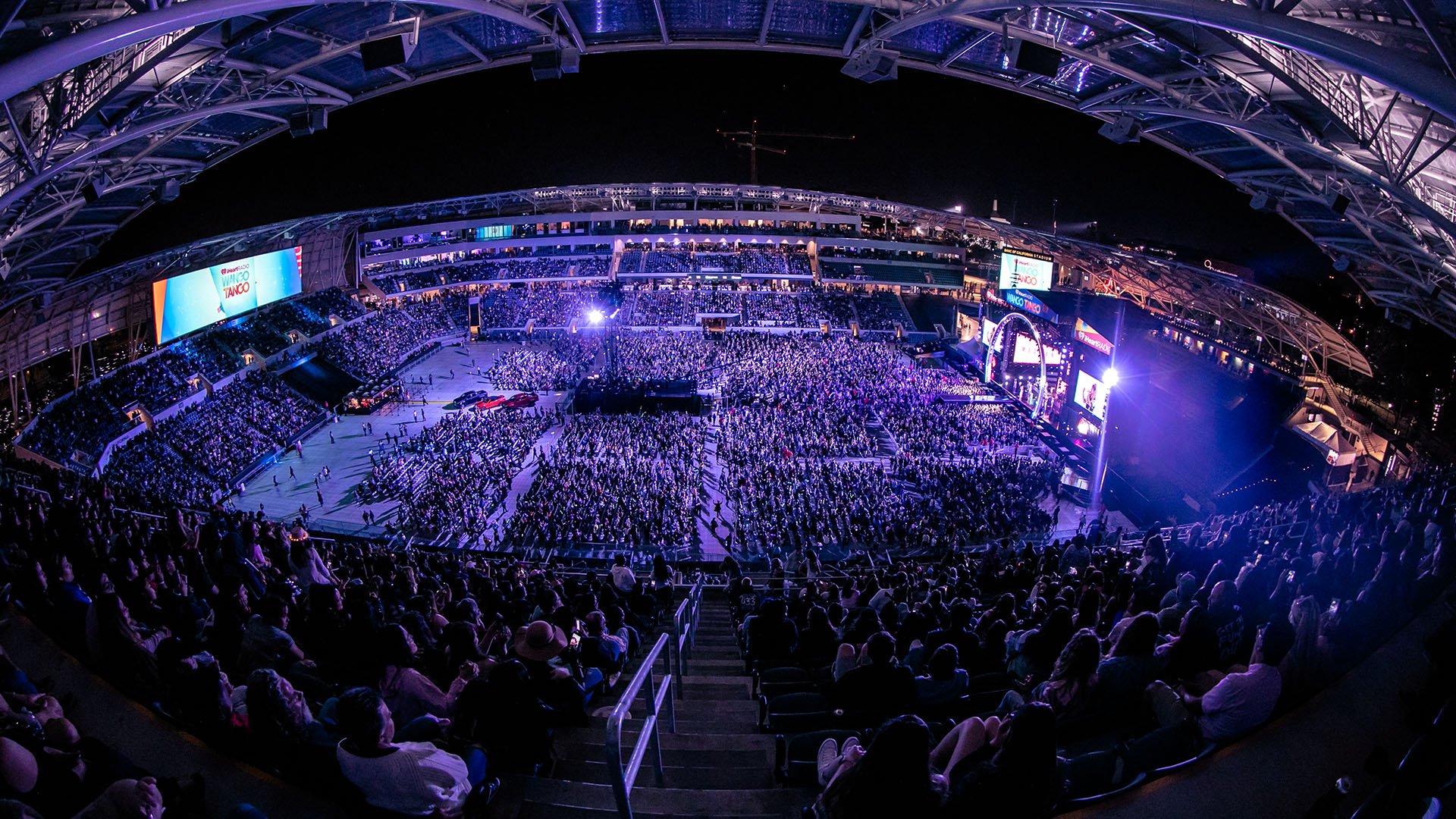
Photo Credit: LAFC
What are some of the key reports or metrics you rely on to do your job?
One of them is definitely pacing. The business intelligence team will do a price analysis on any given seat, but they only have two years worth of data to work with. It comes to down pacing and how you’re looking coming into an event. It’s how many tickets have you sold for how much revenue at a certain point in time.
Technology is also a huge piece of it. We’re well beyond tracking things in Excel spreadsheets. Our analytics team has this enormous data warehouse and they’re constantly running algorithms to get the information we need. I can ask for any report and they just make it happen. It’s an incredible group of people.
Are there any common challenges that you find yourself dealing with each week?
A lot of the challenges are somewhat institutional. We’re still a young organization. We just started year three. We have a lot of experienced people with great ideas but we’re still trying to figure out how to put them in place and implement them. It’s a good problem to have because it means you’re improving your processes.
How have you handled times when tickets aren’t selling well?
Humanizing players is a big thing. Fans want to feel connected to the individual players. You want to take things from "Hey, that's number 10 over there" to “Hey, that's Carlos Vela, and I feel like I know that guy” because of some video or interaction. You also never want to get desperate. We’ve been extremely fortunate to not really encounter this problem at LAFC yet.
How do your responsibilities change at the end of the season?
We’re a little unique among MLS Stadiums. We host a lot of concerts and touring shows. We were on pace to try and do ten in 2020 which is a lot for an MLS facility. There is a wrap up for the sports season and an overall end-of-year reconciliation. When you’re the ticketing guy, you’re also a defacto finance guy. If you can’t add or subtract, you’re not going to make it very far in the ticketing world.
A lot of the financial reconciliation is about making sure the reporting is in place. We’re also looking at procedures. We always sit down to review the year going back to opening day looking for things we can improve in the upcoming year.
 Brian down on the pitch at Banc of California Stadium following LAFC's elimination in the playoffs during the inaugural season.
Brian down on the pitch at Banc of California Stadium following LAFC's elimination in the playoffs during the inaugural season.
You mentioned that you dabbled in security for a bit. Do you have tips or best practices on that side of things?
From a security perspective, I always try to be very cognizant of our internal policies, how they affect guests, and then how we communicate that. For example if a stadium has a clear bag policy, make sure that is communicated broadly and well in advance. The messaging has to be on every event page and every ticket. And then ingress is really the point where you find out whether you've done the communication right or not.
LAFC also has reporting built into our ticketing system that gives us a graphical map of the stadium. You can watch every ticket scan in and look at the pass through rates. If the rate drops at a gate, you know something is going on. That gives ticketing a great opportunity to work with security and figure out if the issue was something that could have been fixed in advance.
I think a lot of events could benefit from looking at their pass through metrics.
It helps a lot. I put it up on the TV in my office and leave it up. Anybody can walk into the office and see what the pass through rates are at any given gate, what percentage of fans are in the building at any given time, and what seats have been scanned. It also allows me to discover problems early on and get in front of them.
Do you think technology can improve any other areas of ticketing?
I’ll give LAFC credit for being a technology first organization. The organization’s Chief Technology Officer, Christian Lau, is really pushing the envelope any way he can. We were the first major venue to roll out Ticketmaster’s new SafeTix product that rotates bar codes. People can’t spoof barcodes. It’s contactless ticketing. We don’t issue any paper tickets. The guest gets a text message and they pull up the digital ticket from there. We’ve completely eliminated fraud which was a major issue for us early on and for most venues.
 Photo Credit: LAFC
Photo Credit: LAFC
I think biometrics will be the next big thing in ticketing. Your ticket is your face or fingerprint.
We’ve started rolling out biometrics on a small scale. We have a partnership with CLEAR that lets you verify your tickets by scanning your fingerprint. CLEAR is also used for airport security, If you’re a CLEAR member, you can connect your ticketing account, walk up, scan your fingerprint, and walk right into the building. We have also been looking into facial recognition.
You already mentioned business intelligence and security, but who else do you work closely with to put on an event?
If it’s an LAFC event, the process starts with the event booking team. They’re finalizing the contract details and deal points. Then you look at the contract to figure out what needs to be fulfilled on the ticketing side. From there it goes to the business intelligence team to figure out the revenue potential and put together a pricing model. We work with the sales, service and booking departments to make sure we’re hitting timelines for the on-sale and holding back the right seats. Then we watch the on-sale through the day of the sale and make adjustments as needed to holds and pricing.
On show night, I start working with the facility team. We work with the event operations department to make sure the access controls are put in place and the gates are configured the proper way. You're working with security and guest services to make sure people are getting in the building. Over the course of night, you’re also working with food and beverage or engineering if things break. The box office becomes the de facto information center. You’re expected to know all.
Do you have any suggestions on what leads to effective collaboration with those teams?
Let the experts be the experts. The last thing I want to do is tell operations how to do their job. The last thing I want is security telling me how to handle ticketing. My biggest thing is to respect other departments and their expertise in their own world. It requires a lot of trust. Stay in your lane and do your job and let everyone else do theirs. Then the event comes together in the best way.
What do you look for when you hiring people to join your team?
Experience is great, but I also want somebody that has enthusiasm and the ability to express themselves. I will take somebody that wants to do a job and has a little bit of experience over someone that has a ton of experience and is just apathetic about it every day. Event nights are 12-14 hour days. You don’t sleep the month before opening a new building. It’s more about enthusiasm and team dynamics. It’s about making sure everybody fits together. Everything else I can teach.
 Brian and his box office team on the ice at T-Mobile Arena. It was just the NHL logo at that time because the Vegas Golden Knights hadn't a picked a name yet.
Brian and his box office team on the ice at T-Mobile Arena. It was just the NHL logo at that time because the Vegas Golden Knights hadn't a picked a name yet.
How do you see events changing over the next 10 years?
A month ago, I would have immediately answered that question with technology. And I think there's still some aspect to that. The event world has changed so much in the last 10 years due to the technological advances from digital ticketing to better services at the stadium. A concert is always gonna be a concert. A sporting event is always gonna be a sporting event. But that experience will continue to be enhanced and augmented with technology to keep people engaged and grow audiences.
But now it’s going to be very interesting to watch how live events come out of this current period. What effect will social distancing have on events? You can mitigate that to a certain extent. But once everybody is in the building, there’s only so much you can do to manage it.
What's one of your most memorable event experiences?
They say you never want to meet your heroes or be careful about meeting your heroes. In 2008, Garth Brooks did a concert at Staples and I got to meet him. He was one of my personal music heroes, and he was an amazing guy in person. I’ve met other people that aren’t, but he made for one of those great experiences when you get to meet your heroes.
If you could interview another person about their best practices for producing an event, who would that be and what would you ask them?
I think you should look to your peers. Who are the people doing what you’re doing on the same or higher level? You want to talk to those people about their best experiences. You also want to learn about things that don’t work out. That’s just as important.
Appreciate the time Brian. Thanks so much for sitting down with us.
You got it. Glad we could do this.
------
LENND, INC
Lennd is a next generation event management platform that simplifies operations and logistics so event teams can work smarter, move faster, and improve their ROI.
To learn why some of the most respected event teams trust Lennd to power their operations or sign up for a demo: www.lennd.com
LOS ANGELES FOOTBALL CLUB
The Los Angeles Football Club (LAFC) is the newest MLS soccer club serving the greater Los Angeles area. Coming off a record-breaking season, LAFC is dedicated to building a world-class soccer club that represents the diversity of Los Angeles and is committed to delivering an unrivaled experience for fans. LAFC’s ownership group is comprised of local leaders and innovators of industry with intellectual capital, financial prowess, operations expertise and success in the fields of entertainment, sports, technology and media. LAFC is invested in the world’s game and Los Angeles, constructing and developing the 22,000 seat Banc of California Stadium and a top-flight training center on the campus of Cal State Los Angeles. www.lafc.com



